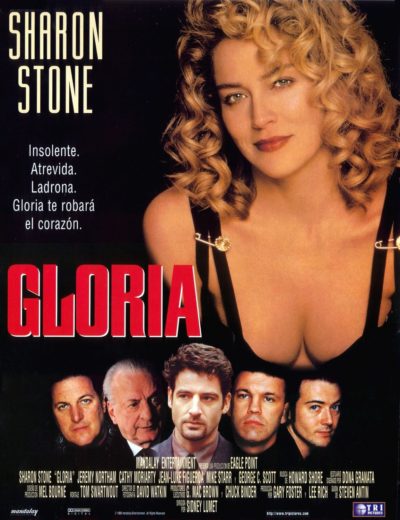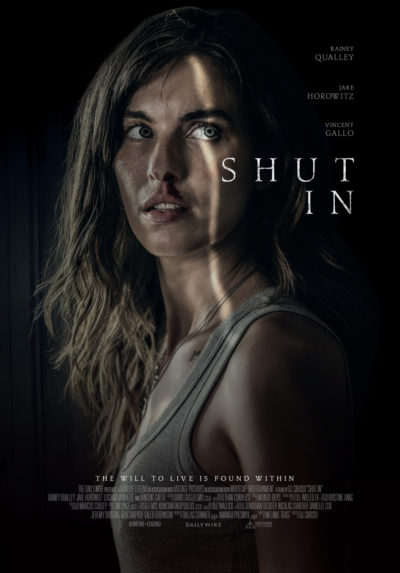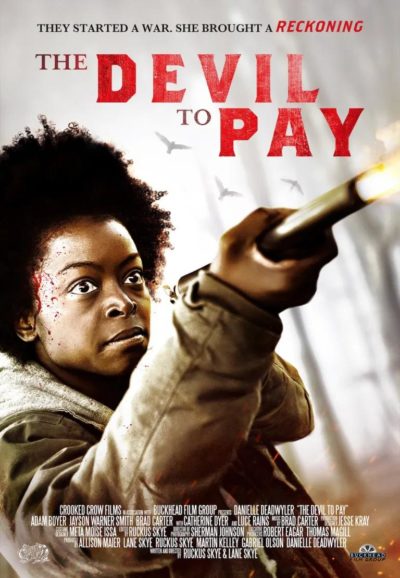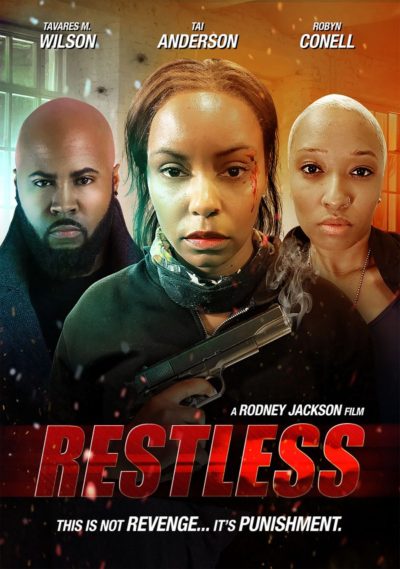★★★
“Jenny from the Glock.”
 It has been a very quiet year for big-budget action heroine movies so far. Here we are, more than one-third of the way through 2023, and this Netflix Original is likely the highest profile entry to date. There is a certain pedigree here, albeit of the direct-to-streaming variety, with director Caro having also helmed the (considerably more expensive) live-action remake of Mulan, which went straight to Disney+. Lopez has dabbled in the action field before, including the likes of Anaconda and Enough, but this is certainly her first full-on entry into our field. The results are workmanlike, and occasionally reasonably impressive, but there’s nothing outstanding or original enough here to make much impression.
It has been a very quiet year for big-budget action heroine movies so far. Here we are, more than one-third of the way through 2023, and this Netflix Original is likely the highest profile entry to date. There is a certain pedigree here, albeit of the direct-to-streaming variety, with director Caro having also helmed the (considerably more expensive) live-action remake of Mulan, which went straight to Disney+. Lopez has dabbled in the action field before, including the likes of Anaconda and Enough, but this is certainly her first full-on entry into our field. The results are workmanlike, and occasionally reasonably impressive, but there’s nothing outstanding or original enough here to make much impression.
Lopez plays an unnamed former soldier – “The Mother” is all even the credits call her – who gets involved with a pair of arms dealers, then betrays them to authorities. In revenge, one of them, Adrian Lovell (Fiennes) finds her and stabs her heavily pregnant belly. The resulting baby daughter survives, but the mother is convinced to give her child up for adoption, and vanishes off the grid herself. 12 years later, she’s told by FBI agent William Cruise (Hardwick), whose life she previously saved, of am impending kidnap attempt on her daughter, Zoe (Paez). The mother comes out of hiding to protect Zoe, though re-establishing any kind of relationship proves difficult. Not least, because Lovell is still intent on getting his revenge. Still, bonding over wilderness survival training salves all emotional wounds, apparently.
It’s all fairly straightforward, and you can likely predict where the film is going to head, at any given point. At 117 minutes, it feels somewhat too long, and there’s a split in focus as far as the antagonist goes, with Gael García Bernal playing arms dealer Héctor Álvarez. I wonder if merging his character with Lovell would have made more sense. There’s also too much time spent on the relationship between Zoe and her mother, along with a painfully obvious metaphor in the shape of a wolf bitch and her offspring, which teeters perilously close to dead horse territory much of the time. It doesn’t help that Paez has a severe case of Resting Teenager Face, and I found it almost impossible to care about her.
The film is considerably better when the characters stop speaking and begin chasing, stabbing and shooting each other instead. Even if the action sequences are sometimes over-edited, they are decently staged, I particularly enjoyed a chase, involving the Mother using her feet, a motor-cycle and a car, through the streets of “Havana” (actually Las Palmas in the Canaries). Now and again I could believe that Lopez was not just sitting in her trailer, letting her stunt double do all the work. Like most Netflix Originals e.g. The Old Guard, this will pass muster as entertainment, before vanishing off the front page of the streaming service, and heading into long-term obscurity, forgotten by most who saw it.
Dir: Niki Caro
Star: Jennifer Lopez, Lucy Paez, Omari Hardwick, Joseph Fiennes






 The main theme of this book appears to be, “How far will a mother go, to protect her daughter?” Based on what we read here, the answer to that question appears to be, “Very, very far.” The heroine is Sherica Daniels, who initially appears to have somewhat lucked out and escaped a nasty and abusive relationship. Her husband, drug addict Roy, has just died following a pair of botched armed robberies. That should leave her and teenage daughter Ashlynn to get on with their lives. Not so fast. For it’s only a short while before Roy’s drug dealer, Tokie, shows up. He’s demanding Sherica pays her husband’s debt – and more, because he believes she knows where the unrecovered loot from Roy’s robberies was hidden. When she fails to convince Tokie otherwise, he abducts Ashlynn.
The main theme of this book appears to be, “How far will a mother go, to protect her daughter?” Based on what we read here, the answer to that question appears to be, “Very, very far.” The heroine is Sherica Daniels, who initially appears to have somewhat lucked out and escaped a nasty and abusive relationship. Her husband, drug addict Roy, has just died following a pair of botched armed robberies. That should leave her and teenage daughter Ashlynn to get on with their lives. Not so fast. For it’s only a short while before Roy’s drug dealer, Tokie, shows up. He’s demanding Sherica pays her husband’s debt – and more, because he believes she knows where the unrecovered loot from Roy’s robberies was hidden. When she fails to convince Tokie otherwise, he abducts Ashlynn. Margo Crane (DelaCerna) has been brought up by her native American father, since her mother walked out on them several years ago. Under his guidance, they have become self-sufficient, and Margo has become a crack shot. However, her creepy uncle ends up having sex with the teenager, an incident for which she gets blamed, ruining her life. She resolves to apply her shooting skills on him, only for the resulting incident to become a tragedy. Margo strikes out on her own up the Stark river, in search of her absent mother. Doing so, she meets a variety of people, then has to try and reconnect with a woman who now has her own life, one not necessarily helped by the unexpected arrival of a teenager.
Margo Crane (DelaCerna) has been brought up by her native American father, since her mother walked out on them several years ago. Under his guidance, they have become self-sufficient, and Margo has become a crack shot. However, her creepy uncle ends up having sex with the teenager, an incident for which she gets blamed, ruining her life. She resolves to apply her shooting skills on him, only for the resulting incident to become a tragedy. Margo strikes out on her own up the Stark river, in search of her absent mother. Doing so, she meets a variety of people, then has to try and reconnect with a woman who now has her own life, one not necessarily helped by the unexpected arrival of a teenager. Yeah, I’ll confess to having Laura Branigan’s eighties hit running through my head on repeat almost the entire movie, even if its lyrics can only be tangentially tied to it. What also struck me is how strong of an influence this was on Luc Besson’s Leon, especially at the beginning. I mean: a criminal gang takes out an entire family in a New York tenement, except for one child, as punishment for the father having tried to steal from them. That survivor takes refuge with a very reluctant neighbour with mob ties, who then has to protect the child as they move about the city. There’s even a scene where one of the gang fires his gun at a nosy resident.
Yeah, I’ll confess to having Laura Branigan’s eighties hit running through my head on repeat almost the entire movie, even if its lyrics can only be tangentially tied to it. What also struck me is how strong of an influence this was on Luc Besson’s Leon, especially at the beginning. I mean: a criminal gang takes out an entire family in a New York tenement, except for one child, as punishment for the father having tried to steal from them. That survivor takes refuge with a very reluctant neighbour with mob ties, who then has to protect the child as they move about the city. There’s even a scene where one of the gang fires his gun at a nosy resident. Nineteen years after the original, four-time Oscar nominated director Lumet opted to remake Cassavetes’s movie. Though by some accounts, it was more a case of him wanting to work, rather than being particularly attracted to the project. If the results are anything to go by, he should have stayed at home. For the film was a bomb, and leading lady Stone received a Razzie nomination for her efforts. I wouldn’t have said she was that bad, though she’s clearly not at the same level as Gina Rowlands in the original. It does also address some of what I felt were its’ predecessor’s weaknesses. However, it tones down the central character, and this helps lead to what you’d be hard-pressed to argue is other than an inferior product overall.
Nineteen years after the original, four-time Oscar nominated director Lumet opted to remake Cassavetes’s movie. Though by some accounts, it was more a case of him wanting to work, rather than being particularly attracted to the project. If the results are anything to go by, he should have stayed at home. For the film was a bomb, and leading lady Stone received a Razzie nomination for her efforts. I wouldn’t have said she was that bad, though she’s clearly not at the same level as Gina Rowlands in the original. It does also address some of what I felt were its’ predecessor’s weaknesses. However, it tones down the central character, and this helps lead to what you’d be hard-pressed to argue is other than an inferior product overall. I guess, at its heart, this is the story of two mothers. There’s Jo (Campbell-Hughes), an anaesthetist who has been struck off the medical register, for reasons that are left murky. She’s now practicing her healing arts on the underground market, from patching up dubious stabbing victims, to carrying out unlicensed abortions. Jo lost her daughter to meningitis, and has split from her husband. Then there’s Bernadette (Brady), a wealthy but no less murky character. Her daughter is dying, and in desperate need of a transplant. To that end, Bernadette has kidnapped a young woman, Aine (McNulty), with the intention of using her as an unwilling organ donor, and needs Jo’s help for the operation. But when Aine – who would be about the age of Jo’s daughter had she lived – escapes and hides in the back of the physician’s car, Jo is left with a series of difficult decisions.
I guess, at its heart, this is the story of two mothers. There’s Jo (Campbell-Hughes), an anaesthetist who has been struck off the medical register, for reasons that are left murky. She’s now practicing her healing arts on the underground market, from patching up dubious stabbing victims, to carrying out unlicensed abortions. Jo lost her daughter to meningitis, and has split from her husband. Then there’s Bernadette (Brady), a wealthy but no less murky character. Her daughter is dying, and in desperate need of a transplant. To that end, Bernadette has kidnapped a young woman, Aine (McNulty), with the intention of using her as an unwilling organ donor, and needs Jo’s help for the operation. But when Aine – who would be about the age of Jo’s daughter had she lived – escapes and hides in the back of the physician’s car, Jo is left with a series of difficult decisions. After
After 

